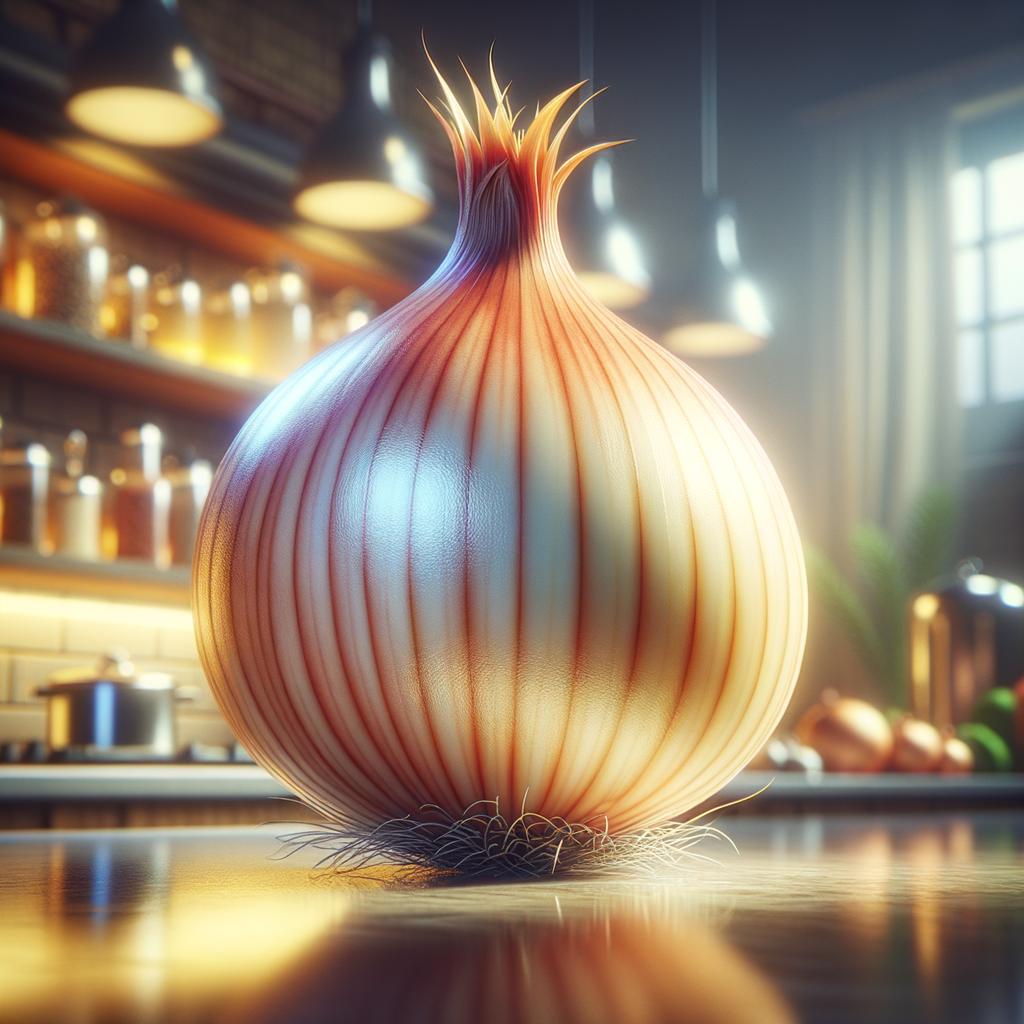Onion

Description
Onions, the humble bulbous vegetables, are a staple in kitchens around the world. Their outer skin ranges from a crisp white to a fiery red or a deep, earthy brown. Once peeled back, the inner layers reveal a translucent white flesh. The texture of an onion can be crisp and crunchy when raw, but when cooked, it transforms into a tender, almost melting consistency. The flavor profile of an onion is complex and versatile, varying from a strong, pungent sharpness when raw, to a sweet, caramelized richness when cooked. What sets onions apart from their vegetable counterparts is their ability to form the backbone of flavor in countless dishes, and their tear-inducing properties when cut, a unique characteristic caused by the release of a certain enzyme.
Primary Uses
Onions are used in a myriad of ways in cooking, serving as the foundation for many dishes across a range of cuisines. They can be chopped, minced, or sliced and added to soups, stews, and stir-fries, or caramelized and used as a topping for pizzas and burgers. In Indian cuisine, onions are often browned and used as a base for curries, while in French cooking, they are the star ingredient in the classic French onion soup. Beyond their culinary uses, onions have also been used for medicinal purposes, with some cultures using them to treat colds, improve heart health, and even as a topical treatment for bee stings.
History
The onion has a rich and intriguing history that dates back over 5,000 years. Originating in Asia, onions were highly valued by the ancient Egyptians, who believed their spherical shape and concentric rings symbolized eternity. They were even used as currency to pay the workers who built the pyramids. Over the centuries, onions spread across the globe, becoming a staple in many different cultures. In the Middle Ages, onions were used as rent payment and wedding gifts. Today, they remain a crucial ingredient in many traditional dishes, from Italian pasta sauce to Mexican salsa.
Nutritional Information
Onions are not only flavorful but also packed with nutritional benefits. They are low in calories but high in vitamins and minerals, including vitamin C, folate, and potassium. They are also rich in antioxidants, which can help reduce inflammation and decrease the risks of heart disease and certain cancers. Onions also contain a special type of soluble fiber called fructan, which can aid in digestion and help maintain a healthy gut. Compared to similar ingredients like garlic, onions have a lower concentration of allicin, a compound with medicinal properties, but they make up for it with their high levels of quercetin, a potent antioxidant. Their unique combination of flavor and health benefits make onions a truly remarkable ingredient in the culinary world.

